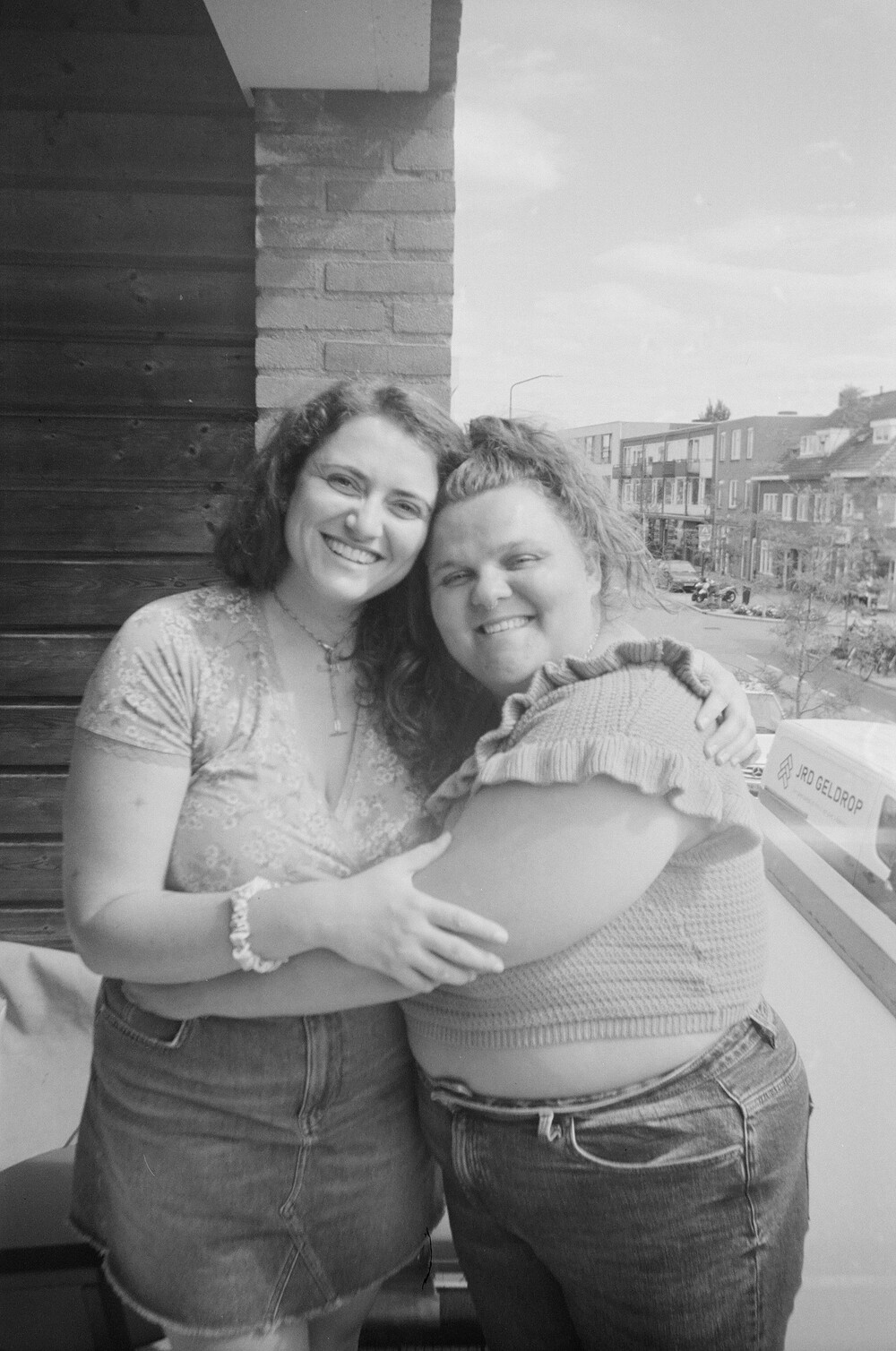Inclusivity Club

Posted On 10/12/2022
Interview by Pete Fung
Going beyond complaining, co-founders Marion and Daisy share their experience setting up a platform, for students by students.
→  Could you introduce yourself and explain what the Inclusivity Club is?
Marion Cévaër: My name is Marion and I am one of the co-founders of the Inclusivity Club, along with Daisy, Alexia and Anna. Back in 2019, we started the Inclusivity Club for ourselves to have a safe space to discuss various issues within the Academy, to support each other and to be accountable to each other. Anyone was welcomed. We meet every Wednesday at lunchtime at the Student Council office. It was a nice private space, but before we knew it, the club had gotten quite big quite fast. We had to improvise so the third floor became this meeting area.
Daisy Dawson: I am Daisy and I was the other instigator of the Club. At the time I was already a part of the Student Council, as I desperately needed support and want to make my voices heard. However, the Student Council already had so much day-to-day business to deal with so it was only logical to create another more flexible space, specifically for inclusivity issues. The idea was that we would always be available, every week. It was a platform for people that wanted to do more, wanted to make change with the school.
“At some point, we felt, it is nice to complain but what can we do about it.”
→  How do the meetings work?
MC: As students, we were always complaining to each other about what was not working in school and what frustrated us. At some point, we felt, it is nice to complain - but what can we do about it?
DD: Collectively we talk a lot about what the problems are and we also run workshops together to come up with possible solutions. Sometimes our meetings would have 12-15 people. We always have a constructive approach and it felt empowering for many of us.
For example, I am neurodiverse and Marion would come in as an ally in support. One time, we were trying to redesign the grading sheets for first year of the BA programme. We were trying to find different ways to colour code it, indicating to teachers the different challenges students might have on a personal level, again especially in relations to neurodiverse issues. It is always about having a creative approach to these political issues or ideas, rather than just sitting in a meeting complaining and expecting someone else to change things for us.
→  Why is it important for you to initiate something like the Inclusivity Club next to your studies?
DD: For me, I feel I shouldn’t have to do it in the first place. The club was born out of necessity for my rights as a student. I would love to join a badminton club instead, and not have to fight for the common good. That being said, I am glad I did and it was nice to bring people together to discuss what’s urgent within the school. I understand that things take time to change and by no means we were the only ones who are contributing to issues within this school. There are many before us and no doubt there will be more students in the future flighting for what they believe are needed. Neurodiversity, of course, was a big topic at the time but we were also looking at other issues, such as racism, sexism, homophobia etc.
"No one is born open-minded, it takes education and practice and it is a responsibility that everyone within the institution can take on."
→  What does care looks like within an educational setting?
DD: I think care is where people in the institution are provided with the right kind of professional training and respect - for students, tutors and staff. This is one of the things we also tried to instigate with the club - a diversity and inclusion training for everyone. For me, care is about being on the same level and that we can all be equal, freed from power dynamics that are sometimes unhealthy. It is also about having peers around you who can accept you for who you are and respect the difference between us. No one is born open-minded, it takes education and practice and it is a responsibility that everyone within the institution can take on.
MC: I agree 100% with that. For me, actions speak much louder than words and promises. To care is to respond to the issues being brought up to you, whether it is for an individual or for the institution.
→  Where can students find you?
The club in the context of DAE has been on hiatus indefinitely since COVID began but if anyone is interested, we are more than happy to chat with them about our experience of running something like the Inclusivity Club at school. We would be happy if someone wants to take up the mantle in continuing it. It has been wonderful for ourselves to have a space like this, a caring moment to get to know different people within DAE and talk openly about our shared struggles. We can only hope others will be able to as well. You can sand us a message on Instagarm @inclusiveclubcollective.